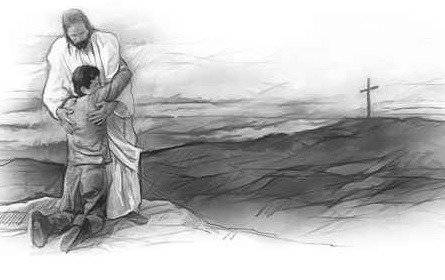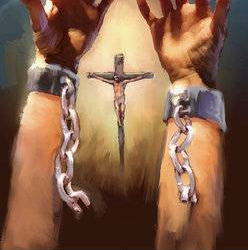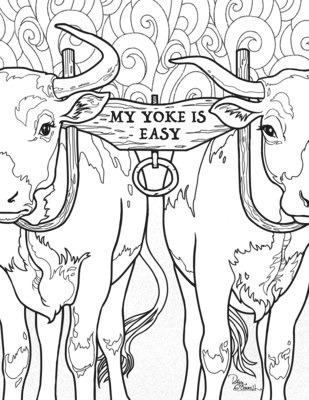#ODYSSEUS GETS ALL THE CREDIT FOR TRYING TO LEAD FROM THE HEART
Explore tagged Tumblr posts
Text
I love. LOVE. Get In the Water
It's one of the objectively best songs in the musical; I will die on this hill.
Poseidon was always, despite being pretty much the main antagonist of EPIC, a really underdeveloped character in my opinion. He just needed a little more nuance, and the fact that one (+ kind of one more) song managed to add so much to his characterization pretty much exclusively through subtext and implications is incredibly impressive writing. Because it did!
At the start, he's yet again playing games with Odysseus, the way he did in Ruthlessness. In both songs, he could kill him easily at any point, yet he chooses not to for the sake of playing games. In Ruthlessness, this becomes his own hubris as it leads to Odysseus escaping.
If you listen closely, at the start of GITW he already sounds slightly different. He's still trying to keep up this "God of Ruthlessness" front that he's so proud of, but he's no longer more or less carefree the way he was in Ruthlessness. He's been obsessing over this feud for ten years, and even if he would never admit it, it's actually clear just from his voice that he really is tired of it too. Not in the sense of it emotionally draining him the way it probably does Odysseus, but in the sense that it's a bother, a loose end in his life, a book that he finally wants to slam shut.
But he still has a reputation to uphold, and he still cannot close this book until Odysseus is dead, so he keeps up the game. Instead of just killing him, he's taunting him to kill himself. He might associate the idea of just striking him down with a sort of loss, like then he'd have to get his hands dirty. Then he's rambling about killing his people, his family. He's provoking Odysseus on purpose, likely trying to get him to snap back, to hate and fear him the way that Poseidon would think any mortal who has consumed this much of his time should. In his eyes, Odysseus deserves nothing less than to curse him with his last breath as his "darkest moment," the god who became the bane of his life.
And Odysseus replies, of all things, with ... sympathy.
Honestly, I don't blame Poseidon for being speechless for three full seconds. He literally just threatened to gauge Telemachus' eyes out the way Odysseus did with Polyphemus, and this absolute madlad of a man replies with an acknowledgment that he (might have) caused Poseidon pain too.
Now, I don't really think Poseidon was particularly hurt over Polyphemus' loss, or hurting in any way in that moment (if he were, I highly doubt he'd still be playing games, and he would've mentioned his son as opposed to speaking about his reputation.) But just the fact that Odysseus acknowledges that he might be hurting too is probably something Poseidon hasn't heard in ... who knows how long? His family is the Olympians. I don't think I have to say more.
It's actually more of a genuine apology than Odysseus' explanation in Ruthlessness ... (even though that was also a perfectly fine apology by Greek standards, as far as I'm aware.) Now he doesn't say "sorry" because he's still not sorry for hurting Polyphemus, since he still needed to do that in order to escape. But he expresses regret over the pain he caused in a more genuine way than ever.
I am convinced that Poseidon is utterly unfamiliar with sympathy or mercy. He's lived by his "Ruthlessness is mercy" motto for centuries, and he doesn't know anything else. No one would try to teach him something different. The other gods all live by this logic, even if he's the most vocal about it considering he seems to have made it his whole personality. Mortals wouldn't dare to question Poseidon in the first place. And barely anyone would be willing to treat someone with kindness who is in turn treating everyone around them with ruthlessness.
It's very likely that Poseidon hasn't encountered anyone like this until Odysseus. Ruthlessness is simply how he treats people and also how he expects to be treated back. The fact that Odysseus doesn't, the fact that instead of hating, fearing, or cursing him, he acknowledges that they have both hurt each other and that it doesn't lead anywhere to still pursue vengeance, must have triggered Poseidon in an unprecedented way.
To him, this was probably the most outrageous thing Odysseus could have said in that moment. And it throws him off so much that he is genuinely speechless, and then simply replies, "I can't." ... his most genuine-sounding line in the whole musical.
I cannot stress enough how much it threw me off to hear this line; in the best way imaginable, it doesn't sound like Poseidon. It sounds almost vulnerable. Almost human. Because he is genuinely at a loss so much that he forgets to put up his "wrathful god" facade for just one second. Standing ovation to Steven Rodriguez for his whole performance, but especially this part.
And then Odysseus goes all out to say something even more outrageous: "Maybe you could learn to forgive?"
... Which is when Poseidon snaps.
Kind of understandable, honestly. There's this mortal whom he has likely fantasized about seeing pleading, hate-filled, and terrified, cowering before him for ten years now ... telling him that he ought to learn something. Even hijacking his own motif and his instrument in order to turn it on its head, "defile" it if you will.
This f*cking mortal pr*ck took his own "Ruthlessness is mercy upon ourselves" catchphrase and turned it into forgiveness ... Of course, Poseidon is no longer hesitating; of course, he is no longer concerned with getting his hands dirty or not. He yells "DIE!" and unleashes his ultimate move (which is really overkill for simply killing a mortal if you think about it) ... But he does it anyway because this time he genuinely means it.
... That, and I am also convinced he jumps to that in order to simply shut Odysseus up, fearing what he might do or think if he lets him go on. Because you cannot tell me that Odysseus didn't actually reach him for just one moment. He was far too thrown off guard, far too vulnerable in that one second. That moment of kindness did something to him, and he hated it. He also probably didn't trust himself to be able to keep listening to Odysseus speak like that. So, he abandons his (still very technically feasible!) blackmail/intimidation and just straight-up kills him.
This simple exchange (my favorite moment in the whole musical, actually) tells us so much about both of these characters that it makes me want to skitter and squeal in excitement.
Here is Odysseus—the very same one whom Poseidon specifically tried to teach ruthlessness—becoming the first person in a long time to offer him sympathy despite how Poseidon himself showed him nothing but ruthlessness. And then one song later, here is Odysseus showing him the consequences of not accepting said sympathy.
Six Hundred Strike and what Odysseus does to Poseidon would've not hit the same, in my opinion, if he hadn't made this offer, if he hadn't given Poseidon this way out, even if no one watching genuinely expected it to work (probably not even Odysseus himself.)
Six Hundred Strike is not Odysseus exacting vengeance If GITW proved anything about Odysseus, it's that he does not want vengeance. He wants all of the hatred and pain to be over, to the point where he is willing to let go of, and I am inclined to say forgive Poseidon for what he's done to him. Six Hundred Strike is simply Odysseus teaching him this lesson that Poseidon couldn't have learned in any other way, because he has proven in GITW that he genuinely does not speak any language besides that of ruthlessness (more on that in this essay!)
It's just the perfect representation of how Odysseus has now finally learned the balance between mercy and ruthlessness, which seems to be the core theme of the musical: Both have their time and place; one simply has to be willing to act in both ways and know when to use either. No one extreme is the solution. I am genuinely exhilarated that Odysseus finally seemed to have figured out that it's been both all along.
#this is easily one of the objectively best songs in the musical#god games is similarly great in subtle characterization#and thunder bringer is a lyrical masterpiece#those are definitely the top 3 if we go by objective quality alone#no i will not shut up about this moment ever#i love it so dearly#the CHARACTERIZATION man#i went from being annoyed by poseidon to dearly loving him as a character#is he my second favorite god now? maybe#inhales IT DOESNT MATTER HOW GOOD THE CHANCES OF IT WORKING WERE#ODYSSEUS GETS ALL THE CREDIT FOR TRYING TO LEAD FROM THE HEART#i will die on this hill#epic musical#epic the musical#epic the vengeance saga#get in the water#epic odysseus#epic poseidon#jorge rivera herrans#you mastermind#I'm gonna make a tag for these my epic essays#If you want more search on my profile for >#epicssay
111 notes
·
View notes
Text
Covenant Faith - Lesson 12, June 12-18
Sabbath Afternoon

Read for This Week’s Study: Gal. 6:14; Rom. 6:23; I John 5:11, 13; Rom. 4:1-7; Lev. 7:18; Lev. 17:1-4; Rom. 5:1.
Memory Verse: “But that no man is justified by the law in the sight of God, it is evident: for, The just shall live by faith” (Galatians 3:11).
About seven centuries before Christ, the poet Homer wrote the Odyssey, the story of Odysseus the great warrior who — after sacking the city of Troy in the Trojan war — began a ten-year voyage to try to return to his native Ithaca. The voyage, too, took so long because he faced shipwrecks, mutinies, storms, monsters, and other obstacles that kept him from reaching his goal. Finally, after deciding that Odysseus had suffered enough, the gods agreed to allow the weary warrior to return to his home and family. His trials were, they agreed, enough atonement for his mistakes.
In one sense, we are like Odysseus, on a long journey home. The crucial difference, however, is that, unlike Odysseus, we can never “suffer enough” to earn our way back. The distance between heaven and earth is too great for us to atone for our mistakes. If we get home, it would have to be only by the grace of God.
The Week at a Glance: Why must salvation be a gift? Why could only Someone equal with God ransom our souls? What makes Abraham such a good representative of faith? What does it mean that righteousness is “imputed” or “credited” to us? How can we make the promises and hope found in the Cross our own?
Study this week’s lesson to prepare for Sabbath, June 19.
Sunday, June 13

Reflections of Calvary
The Old Testament way of salvation under the Mosaic covenant is no different from the New Testament way of salvation under the new covenant. Whether in the Old or New Testament, old or new covenant, salvation is by faith alone. If it was by anything else, such as works, salvation would be something that was owed us, something the Creator was obligated to give us. Only those who do not understand the seriousness of sin could believe that God was under some obligation to save us. On the contrary, if anything, there was only one obligation, and that was what we owed to the violated law. We, of course, could not meet that obligation; fortunately, Jesus met it for us.
“When men and women can more fully comprehend the magnitude of the great sacrifice which was made by the Majesty of heaven in dying in man’s stead, then will the plan of salvation be magnified, and reflections of Calvary will awaken tender, sacred, and lively emotions in the Christian’s heart. Praises to God and the Lamb will be in their hearts and upon their lips. Pride and self-esteem cannot flourish in the hearts that keep fresh in memory the scenes of Calvary … All the riches of the world are not of sufficient value to redeem one perishing soul. Who can measure the love Christ felt for a lost world as He hung upon the cross, suffering for the sins of guilty men? This love was immeasurable, infinite.
Christ has shown that His love was stronger than death. He was accomplishing man’s salvation; and although He had the most fearful conflict with the powers of darkness, yet, amid it all, His love grew stronger and stronger. He endured the hiding of His Father’s countenance, until He was led to exclaim in the bitterness of His soul: ‘My God, My God, why hast Thou forsaken Me?’ His arm brought salvation. The price was paid to purchase the redemption of man, when, in the last soul struggle, the blessed words were uttered which seemed to resound through creation: ‘It is finished.’
The scenes of Calvary call for the deepest emotion. Upon this subject you will be excusable if you manifest enthusiasm. That Christ, so excellent, so innocent, should suffer such a painful death, bearing the weight of the sins of the world, our thoughts and imaginations can never fully comprehend. The length, the breadth, the height, the depth, of such amazing love we cannot fathom. The contemplation of the matchless depths of a Saviour’s love should fill the mind, touch and melt the soul, refine and elevate the affections, and completely transform the whole character.” — Ellen G. White, Testimonies for the Church, vol. 2, pp. 212, 213.
Pray over what Ellen G. White wrote here. Keeping these lines in mind, read Galatians 6:14 and then ask yourself, in what ways can I glory in the Cross of Christ?
Monday, June 14

The Covenant and the Sacrifice
“You know that you were ransomed from the futile ways inherited from your fathers, not with perishable things such as silver or gold, but with the precious blood of Christ, like that of a lamb without blemish or spot” (1 Pet. 1:18-19, RSV).
What does Peter mean here when he says that we were ransomed?
When Peter speaks about Christ’s atoning death on the cross, the “ransom” or price idea to which he refers brings to mind the ancient practice of a slave being freed from his bondage after a price had been paid (often by a relative). In contrast, Christ ransomed us from the slavery of sin and its final fruit, which is death, but He did it with His “precious blood,” His substitutionary and voluntary death on Calvary. Again, this is the foundation of all the covenants: without it, the covenant becomes null and void, because God could not have justly fulfilled His end of the deal, which is the gift of eternal life bestowed upon all who believe.
Look up the following verses: Rom. 6:23, 1 John 5:11, 13. What message do all of them share in common?
We have this promise of eternal life, because Jesus alone could repair that breach that first caused us to lose that eternal life. How? Because the righteousness and infinite value of the Creator alone could cancel the debt we owed to the broken law — that is how wide the breach caused by sin was. After all, what would it say about the seriousness of God’s eternal moral law if some finite, temporal, and created being could pay the penalty for violating it? Only Someone who is equal to God Himself, in whom life existed unborrowed and underived and eternal, could have paid the ransom required to free us from the debt owed to the law. This is how all the covenant promises are fulfilled; this is how we have the promise of eternal life, even now; this is how we have been ransomed from sin and death.
Imagine that someone’s child, in an art museum, throws a balloon filled with ink on a Rembrandt painting and ruins it completely. The painting is worth millions; the parents, even if they sold everything they owned, could not come close to paying the debt owed. In what sense does this image help us understand just how serious a breach sin has caused, how helpless we are to fix it, and why only the Lord Himself could pay the debt?
Tuesday, June 15

The Faith of Abraham: Part 1
“He believed in the LORD; and he counted it to him for righteousness” (Gen. 15:6).
This verse remains one of the most profound statements in all Scripture. It helps establish the crucial truth of biblical religion, that of justification by faith alone, and it does this long centuries before Paul wrote about it in Romans. All of which helps prove the point that from Eden onward, salvation always came the same way.
The immediate context of the verse helps us understand just how great Abram’s faith was, believing in God’s promise of a son despite all the physical evidence that would seem to make that promise impossible. It is the kind of faith that realizes its own utter helplessness, the kind of faith that demands a complete surrender of self, the kind of faith that requires a total submission to the Lord, the kind of faith that results in obedience. This was the faith of Abram, and it was counted to him “as righteousness.”
Why does the Bible say that it was “counted to” him or “credited to” him as righteousness? Was Abram himself “righteous” in the sense of God’s righteousness? What did he do, not long after God declared him righteous, that helps us understand why this righteousness was credited to him, as opposed to what he himself actually was?
However much Abram’s life was a life of faith and obedience, it was not a life of perfect faith and perfect obedience. At times he displayed weakness in both areas. (Does that sound like anyone you know?) All of which leads to the crucial point, and that is: the righteousness that saves us is a righteousness that is credited to us, a righteousness that is (to use a fancy theological term) imputed to us. This means that we are declared righteous in the sight of God, despite our faults; it means that the God of heaven views us as righteous even if we are not. This is what He did with Abram, and this is what He will do to all who come to Him in “the faith of Abraham” (Rom. 4:16).
Read Romans 4:1-7. Look at the context in which Paul uses Genesis 15:6. Pray over those verses and write out in your own words what you believe they are saying to you.
Wednesday, June 16

The Faith of Abraham: Part 2
Looking again at Genesis 15:6, we can see that various translations have rendered the term counted (Hebrew, chashab) or “reckoned” or “credited” (RSV, NIV) or “accounted.” (NKJV)
The same term is employed in other texts in the books of Moses. A person or a thing is “reckoned” or “regarded" as something that person or thing is not. For instance, in Genesis 31:15, Rachel and Leah affirm that their father “reckons” (“regards” or “counts”) them as strangers, although they are his daughters. The tithe of the Levite is “reckoned” (“regarded” or “counted”) as though it were the corn of the threshing floor, although it is obviously not the corn (Num. 18:27, 30, NIV).
How is the idea of reckoning expressed in the context of sacrifices? (Lev. 7:18, Lev. 17:1-4).
The King James Version uses the word imputed to translate chashab. If a particular sacrifice (“peace offering”) is not eaten by the third day, its value is lost, and it shall not be “reckoned” (Lev. 7:18, NASB; Hebrew, chashab) to the benefit of the offerer. Leviticus 7:18 speaks of a situation in which a sacrifice is “reckoned” to the benefit of the sinner (compare Lev. 17:1-4, NASB) who then stands before God in righteousness. God is accounting the sinner as righteous, although the individual is actually unrighteous.
Take some time to dwell on this wonderful truth that we, despite our faults, can be accounted, or credited, as righteous in the sight of God. Write out in your own words your understanding of what this means.
The great truth, that of being declared righteous, not because of any act that we can do but only because of faith in what Christ has done for us, this is the essence of the phrase “righteousness by faith.” Yet, it is not that our faith itself makes us righteous; rather, faith is the vehicle by which we obtain the gift of righteousness. This, in essence, is the beauty, the mystery, and the glory of Christianity. All that we believe as Christians, as followers of Christ, finds an important root in this wonderful concept. Through faith, we are accounted righteous in the sight of God. All else that follows; obedience, sanctification, holiness, character development, love, should stem from this crucial truth.
How do you respond to someone who seeks to be a Christian yet says, “But I don’t feel righteous”?
Thursday, June 17

Resting on the Promises
There is a story told about the famous Cardinal Bellarmine, the great Catholic apologist who all his life fought the message of justification by an imputed righteousness alone. As he lay dying, he was brought the crucifixes and the merits of the saints to help give him assurance before death. But Bellarmine said, “Take it away. I think it’s safer to trust in the merits of Christ.”
For many people as they near the end of their lives, they look back and see how vain, how futile, how useless their deeds and their works are for earning salvation with a holy God, and thus how much they need the righteousness of Christ.
Yet the good news is that we don’t have to wait for the approach of death to have security in the Lord now. The whole covenant is based on the secure promises of God now, promises for us now, promises that can make our life better now.
Look up the following verses and answer the question asked with each one in the context of developing, keeping, and strengthening your covenant relationship with God:
Ps. 34:8 (How can you taste God’s goodness?)
Matt. 11:30 (What is it about what Christ has done for us that makes this yoke easy?)
Rom 5:1 (What does justification have to do with peace?)
Phil. 2:7-8 (What have you gained from Christ’s experience?)
Prayerfully examine your life and ask yourself, what things am I doing that are strengthening my relationship with God, and what things are hurting it? What changes do I need to make?
Friday, June 18

Further Thought:
“The only way in which he [the sinner] can attain to righteousness is through faith. By faith he can bring to God the merits of Christ, and the Lord places the obedience of His Son to the sinner’s account. Christ’s righteousness is accepted in place of man’s failure, and God receives, pardons, justifies, the repentant, believing soul, treats him as though he were righteous, and loves him as He loves His Son. This is how faith is accounted righteousness.” — Ellen G. White, Selected Messages, book 1, p. 367.
“When through repentance and faith we accept Christ as our Savior, the Lord pardons our sins, and remits the penalty prescribed for the transgression of the law. The sinner then stands before God as a just person; he is taken into favor with Heaven and through the Spirit has fellowship with the Father and the Son.
Then there is yet another work to be accomplished, and this is of a progressive nature. The soul is to be sanctified through the truth. And this also is accomplished through faith. For it is only by the grace of Christ, which we receive through faith, that the character can be transformed.” — Ellen G. White, Selected Messages, book 3, p. 191.
Discussion Questions:
1. What distinction is made between a living and a dead faith? (James 2:17-18). How does Paul describe a living faith? (Rom. 16:26). What is the key word that helps reveal what faith entails?
2. How do you respond to the argument (which comes with a certain logical consistency) that if we are saved only by a credited righteousness, not a righteousness that exists within us, then it does not matter what we do or how we act?
3. “Our acceptance with God is sure only through His beloved Son, and good works are but the result of the working of His sin-pardoning love. They are no credit to us, and we have nothing accorded to us for our good works by which we may claim a part in the salvation of our souls … He [the believer] cannot present his good works as a plea for the salvation of his soul.” — Ellen G. White, Selected Messages, book 3, p. 199. Keeping this statement by Ellen G. White in mind, why, then, are good works such a crucial part of the Christian experience?
Summary: Old Covenant, new covenant: Jesus paid the debt owed by the law, so that we can stand righteous in the sight of God.
0 notes